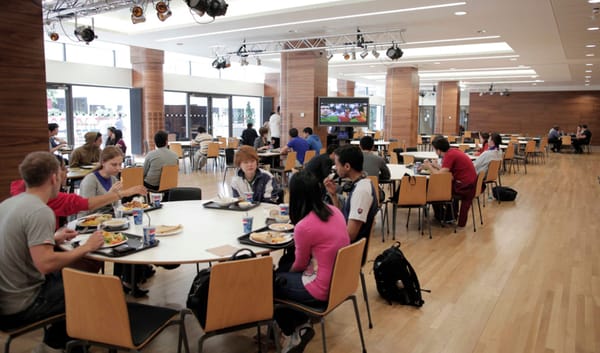UCU call off further strike action, as debates around tuition fee refunds continue
Strike action has been called off as UCU and UUK reach agreement, but pressure is mounting for fee refunds.

Members of the University and College Union (UCU) earlier this month voted to accept proposals from Universities UK (UUK), cancelling strike action scheduled for later this term.
In a ballot, whose results were revealed on the 13th April, 64% of members voted to accept the pensions offer from UUK, with 36% voting to reject the offer. Overall turnout from members was 63.5%.
The proposal put forward by UUK, the regulator of universities in the UK, included maintenance of the current pension scheme until at least April 2019, continued discussion between parties, and establishment of a Joint Expert Panel. The Panel, which would be composed of academics and actuarial experts, would report on valuation of the current pension scheme.
The agreement came shortly after 14 days of industrial action by UCU members came to an end. The strikes were called over changes to the Universities Superannuation Scheme (USS), which UCU said would mean members of the scheme would lose out on £10,000 per year in pension funds. As a result of the action, students across 65 universities lost out on scheduled teaching time. At Imperial, students have been assured they will not be examined on missed content, with the College saying they were “committed to putting measures in place that will safeguard [students’] ability to progress or graduate.”
UCU had originally planned a further 14 days of strike action, timed to coincide with the examination period of many universities. This has been postponed following the agreement.
The development was welcomed by the College, with Professor Alice Gast, President, and Professor James Stirling, Provost, telling staff it was “a welcome step forward, and in line with our call in February to convene an expert group.”
Roddy Slorach, Imperial College UCU’s Diversity Officer, told Felix “The UUK offer removed the immediate threat of the drastic change to our pensions, although it provided few other guarantees. A large majority of UCU members voted Yes in the hope the Independent Expert Panel could sort out the valuation and reduce the ‘deficit’”
However, he cautioned the vote was “absolutely not a vote of confidence in UUK”, saying if the panel recommended pension cuts, another ballot on further industrial action would need to be called. He highlighted the relation these strikes have with general developments in higher education: “It’s important to recognise the broader issues that have driven this dispute. The attacks on our pensions can be traced back to the creation of tuition fees and a market in education. Since then, universities have increasingly seen themselves as competitors, with students seen as customers and staff as costs to be cut.”
Dr Michael McGarvey, President of Imperial College UCU, told Felix UCU membership at Imperial had increased by 60% over the dispute period. "Management should be under no illusion that this decision is a sign of weakness," he said, "We expect the university employers at Imperial and throughout the UK to act in good faith. However, if there is no acceptable outcome from the Panel then UCU can resume strike action."
Fee Refunds
While an agreement has been reached between UUK and UCU, disagreements about whether or not to refund tuition fees to students affected by last term’s strikes are ongoing.
A petition that circulated at the end of last terms asking for a refund of tuition fees in light of missed teaching was signed by over 3,000 Imperial students. It was delivered to senior management at the College, who have thus far refused to confirm whether they will be refunding fees.
A statement on the College website, which was also sent out to several students by Professor Gast, says: “your fees cover all aspects of your time at Imperial, and are based on the delivery of overall outcomes, rather than being payments for specific contact hours. Through our mitigation plans, we are aiming to ensure the impact of the strike on these outcomes is kept to a minimum.”
Some students have felt the response is insufficient. One postgraduate student told Felix: " We value our education and the interaction we have with our lecturers highly. To be told that 14 days of strike has not had an impact on the outcomes of our degrees makes me sad and angry. Sad because the management at Imperial does not seem to be putting as high a value on my education as I am, and angry that they think it is acceptable to fob me off with a standard reply that does not address my genuine request for a refund because my education suffered".
“The Union said the College's response to questions of fee refunds 'failed to address many students' concerns'”
In a statement released on social media earlier this week, Alex Chippy Compton, President of Imperial College Union, and Luke McCrone, President of the Graduate Students’ Union, said the response from senior management was “unsatisfactory, and failed to address many students’ concerns.” They called on students to continue to pressure the College for refunds on any teaching missed and not rescheduled.
Speaking to Felix, Compton said “We’re glad to see that collective action by UCU members has resulted in fresh discussions about the future of their pensions. Current students will be glad to see the end of the strikes that interrupted their education, and future students are less likely to be taught by demoralised, precariously-employed academics. Imperial College Union will continue to press College to make it up to students who missed out on the education they paid for.”
Other universities have also seen demands for refunds of tuition fees. Earlier this week a class action lawsuit organised by law firm Asserson passed a legal milestone, with more than 1,000 students signing up. The group claim now has enough people to qualify for a group litigation order. Asserson predict it could cost universities millions in compensation.
Shimon Goldwater, a senior solicitor at Asserson, told Times Higher Education: “No other service provider would get away with charging for 25 weeks of a service and cutting that to 22 with no price reduction.”









